Despite being the 14th largest state in America, Idaho also holds the distinction of being the 7th least densely populated. If you're a seasoned treasure hunter, this should immediately pique your interest. Idaho's small population means you won't have to contend with crowds as you use your metal detector.
Idaho's metal detecting allure stretches far beyond its large size and minimal population. The state also boasts an extensive history. Archeological evidence suggests that indigenous people called Idaho home thousands of years ago. Traces of these native inhabitants can still be found in the state's soil. Relics from explorers such as Lewis and Clark have also been uncovered.
For the highest chances of success in Idaho, you should focus your metal detecting on the spots that have proven to be productive in the past. In this article we'll review those spots and we'll also review the federal and state metal detecting laws.
Laws
Metal detecting in Idaho is regulated by the Archeological Resources Protection Act. The ARPA is a federal law regulating metal detecting all across America. Its aim is to preserve items of historical and cultural significance. This law prohibits the removal of man-made objects more than 100 years of age from public ground.
The ARPA does not apply to metal detecting done on private property. Anyone planning to use their metal detector on private property should obtain the written permission of the landowner beforehand.
Local Rules and Regulations
Idaho's metal detecting laws can be a little tricky. They have been tricky enough to turn many veteran metal detector hobbyists away from the state. However, we believe the potential reward is well worth learning the laws.
Metal detecting on historic and cultural sites is forbidden. We recommend taking your search to a state park. Metal detecting is allowed in most Idaho state parks, as long as you can obtain permission from park authorities. It's very unusual for park officials to reject metal detector hobbyists outright. However you may be asked to adhere to certain restrictions throughout your hunt.
It's important to remember that permission to use your metal detector does not necessarily indicate permission to dig. If your metal detector alerts you to an item underground, then you'll likely need a digging permit before you can excavate it. You should also be mindful of the fact that the state can claim ownership of any item discovered on public land.
Treasure hunters often get around the laws governing metal detecting on public property by focusing their search on private land. In Idaho, however, doing so isn't always advantageous. Unlike most other states, Idaho has a clear ruling in place regarding the distribution of items found on private property. It declares that any such finds are the legal property of the landowner.
If you are metal detecting on private property and hoping to keep the items you uncover, then you should discuss the matter with the landowner before beginning your hunt.
Best Metal Detecting Equipment
| Product | ||
|---|---|---|
| Metal Detector | 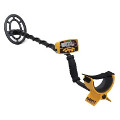 |
|
| Edge Digger | 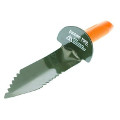 |
|
| Pin-Pointer | 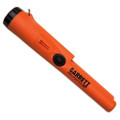 |
|
| Knee Pads |  |
Best Spots
The four spots listed below will give you the best chances for success.
Snake River
Until the mid-1800s, Idaho was inhabited entirely by Native Americans. It was not until the 1840s that European settlers discovered the state. Even then, few Europeans stayed to make it their home. Most were simply passing through Idaho on their way to Oregon. These travelers usually followed the aptly named Oregon Trail.
The Oregon Trail followed the Snake River. As such, the river is a great spot for treasure hunters searching for relics from this important period in Idaho history. With your metal detector in hand, you can potentially uncover long-buried coins on the shores of the Snake River. Treasure hunters have also reported finding old tools and eating utensils at the site. It's also not unusual to find items lost by modern fishermen and swimmers, such as rings and watches.
Burke
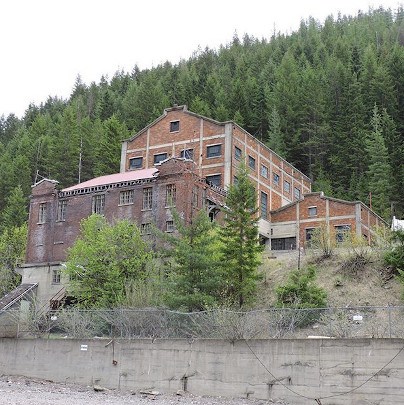
Ghost towns can be found throughout Idaho. Each ghost town offers its own heartbreaking story and, with it, plenty of treasure hunting opportunities.
Burke is one of the most noteworthy ghost towns in Idaho. The great allure of Burke comes from the fact that many of its buildings remain standing. This is particularly impressive given that Burke was the site of multiple natural disasters in the 1900s. Nevertheless, the town trudged along until the new millennium, by which point it had virtually no residents.
Today, treasure hunters frequently report discovering old mining tools in the soil of Burke. Coins, utensils, and jewelry have also been found in the town. While there is presumably much more to be found inside Burke's abandoned buildings, we encourage treasure hunters not to venture inside. The structures are old and crumbling, making injury a serious possibility.
Leesburg
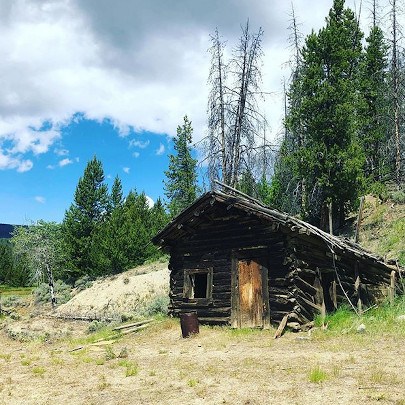
Leesburg is another Idaho ghost town. The town was built back in 1866, which makes it a little older than Burke. The town sprung up almost overnight, after gold was discovered nearby. Thousands of people lived in the town during its most prosperous period. All, of course, were hoping to strike gold and make their fortune.
In total, about $40 million in gold was mined at Leesburg. Despite this, the town was unable to stay afloat into the modern age. Today, nothing remains of this once bustling mining town but a few log cabins. However, evidence of its former inhabitants can still be found in the town's soil. Attentive metal detector hobbyists have a real shot at uncovering mining tools, coins, and even small pieces of gold in Leesburg.
Ann Morrison Park
If you're visiting Idaho as part of a family vacation, then you should definitely visit Ann Morrison Park. Located in the state capital of Boise, Ann Morrison Park features playgrounds, picnic spaces, softball fields, and more. These attractions will keep your family entertained while you go metal detecting.
There are treasures to be found all over the park's 153 acres. Past notable finds include arrowheads, old coins, and other relics from the 18th and 19th centuries. You can also potentially find misplaced items belonging to recent tourists. You are asked to turn such items into the park's Lost and Found department.
Conclusion
Idaho's economy took a major hit during the 20th century. But today the state is known among seasoned treasure hunters as a land of great riches. Truth to be told, those riches can be a little hard to find and the state's metal detecting laws can be restrictive. However, determined metal detector hobbyists have a good shot at success.
Idaho is also a good state for gold prospecting. Check out our article on gold panning in Idaho.
